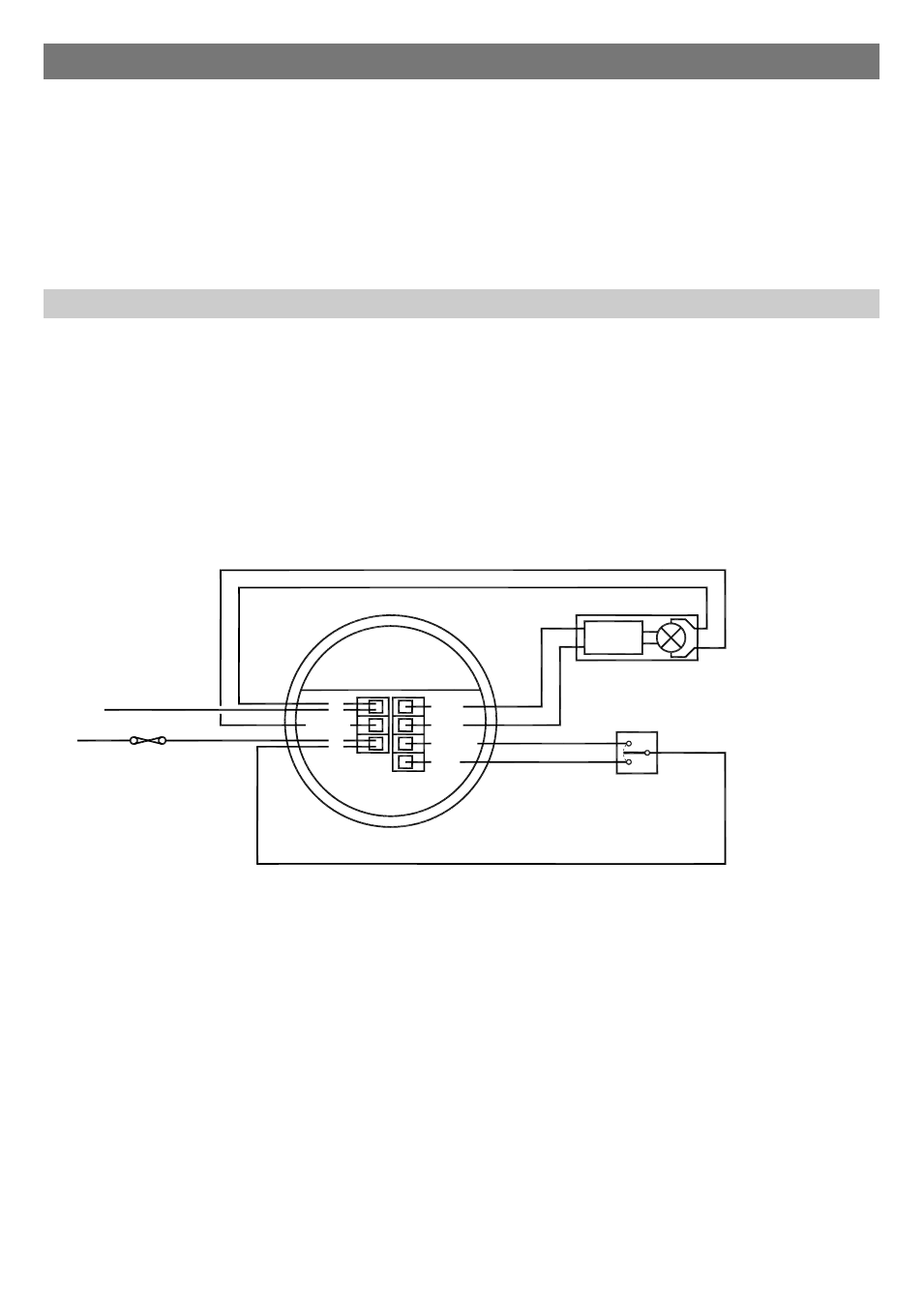Wiring diagrams, Single channel dimming – CP Electronics VITM6-EBDSPIR-DD User Manual
Page 5

5
Single channel dimming
Channel 1 (switched output) of the EBDSPIR-DD can
either be used to switch a separate channel of standard,
non-dimming luminaires, or to isolate the mains supply to
dimming ballasts (saving on the standby current of the
ballasts).
Multiple luminaires may be connected in parallel to
Channel 1 (via the N and L/Out terminals) as long as the
maximum total load is not exceeded.
Channel 2 (dimmable output) of the EBDSPIR-DD can be
used to control the light output of luminaires that are fitted
with dimming ballasts/transformers.
The ballasts/transformers can be connected in parallel to
Channel 2 (via the DIM– and DIM+ terminals). Refer to the
specification on page 12 for ballast quantities.
The wiring examples below show common methods of
connecting the output channels for a single detector unit.
Wiring diagrams
Functions: Switches the luminaire with occupancy and maintains illuminance. Dims and switches using optional centre
biased retractive switch (MK K4900 or similar).
Configured to presence detection: Turns on automatically with occupancy. Maintains illuminance. Press and release
down switch to turn off. Press and release up switch to turn back on. Press and hold up switch to dim up, press and hold
down switch to dim down. Turns off after occupancy.
Configured to absence detection: Press and release up switch to turn on. Maintains illuminance. Press and release
down switch to turn off. Press and hold up switch to dim up, press and hold down switch to dim down. Turns off after
occupancy.
Channel mode: Set to “Switch and dim together”.
Switch mode: Set to “2 position switch together”.
L/OUT
L
N
EBDSPIR-DD SENSOR
SW1/UP
DIM+
DIM-
SW2
DOWN
DIMMING
BALLAST
DIMMING LUMINAIRE
(DSI or DALI)
CIRCUIT PROTECTION
(IF REQUIRED)
LIVE
NEUTRAL
CENTRE BIASED
RETRACTIVE SWITCH
(240V SWITCHING)
Optional for presence,
mandatory for absence detection
- EBDSPIR-DD EBDSPIR-DD-IP-LT30 EBDSPIR-DD-LV MWS3A-DD-LV EBDSPIR-HB-DD EBDSM-DD VITM6-MWS6-DD MWS6-DD MWS6-DD-LV VITM6-MWS3A-DD MWS3A-DD EBDSM-AD VITM6-EBDSPIR-AD EBDSPIR-AD EBDSPIR-AD-IP-LT30 MWS6SM-DD MWS6SM-AD EBDSPIR-HB-AD MWS3A-AD EBDSPIR-PRM-L3 VITMR-EBDSPIR-PRM VITMR-MWS6-PRM MWS3A-PRM-L3 VITMR-MWS3A-PRM MWS3A-PRM-VFC-LV MWS3A-PRM EBDSPIR-AD-LV MWS6-AD MWS6-PRM-L3 MWS6-PRM-VFC EBDSPIR-PRM-VFC VITM4-MWS6-PRM MWS6-PRM EBDSPIR-PRM EBDSPIR-PRM-IP EBDSPIR-PRM-IP-LT30